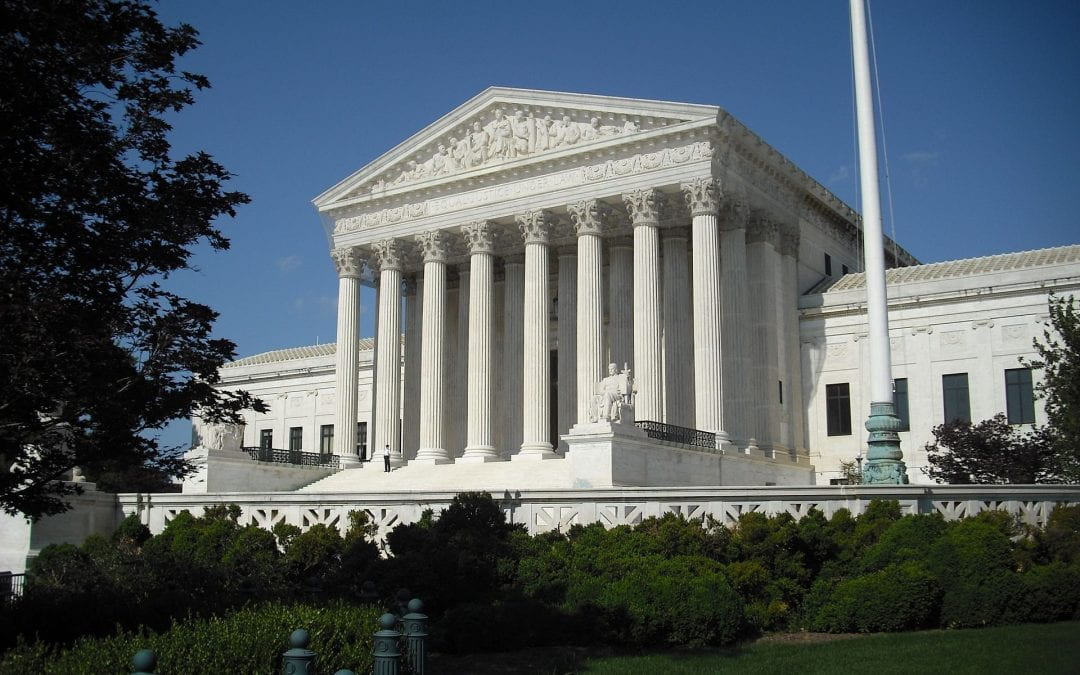By Masha Simonova
The politicization of the institutions of justice, particularly those associated with criminal law enforcement, is one of the greatest threats to the rule of law and the integrity of government. Corrupt leaders in democracies and autocracies alike seek to undermine any check on their power, thus ensuring impunity for themselves and their allies, and may also try to weaponize criminal investigations to harass and discredit political opponents. For many years, most Americans viewed this sort of threat to the integrity of the institutions of justice as something that only happened abroad, or in the distant past. Not so anymore. Under the Trump Administration, the corruption and politicization of law enforcement institutions is a significant threat to American democracy.
That President Trump lacks respect for the independence and integrity of law enforcement has been evident for some time, at least since Trump fired FBI Director James Comey. (Trump dismissed Comey in part to the FBI’s investigation into potential collusion between Trump’s campaign associates and Russia during the 2016 election, and in part because Comey wouldn’t pledge his personal loyalty to the president.) In the last month, the situation appears to be getting even worse. As has been widely reported in the media, President Trump publicly criticized the Department of Justice (DOJ) for seeking a high sentence in the case of Trump associate Roger Stone; Attorney General Bill Barr claimed that President Trump didn’t issue any specific instructions regarding the case (and complained about the President’s tweeting), but Barr nonetheless recommended a much lower sentence that the DOJ’s own prosecutors had originally requested. Barr recently made the highly unusual decision to install an outside prosecutor to oversee the case against President Trump’s former National Security Advisor Michael Flynn. In another troubling move that didn’t get as much press attention, in early February Barr issued a memo saying that any FBI investigations into 2020 candidates or their campaigns would require the Attorney General’s approval.
Trump has asserted that he had the legal right, as President, to intervene in criminal cases. This is a contested claim, to say the least. Some argue that, under the U.S. Constitution, the President has ultimate control not only over general DOJ policy, but over decision-making in individual criminal prosecutions. However, others assert that this is not so, and that the Constitution actually imposes certain limits the President’s control over individual prosecutions—most importantly, that the President cannot seek to affect a criminal case out of corrupt or self-interested motivations.
Putting the legal debate to one side for now, and assuming that Congress—if not now, then at some point in the future—would like to establish new safeguards to insulate the DOJ and FBI from the corrupting influence of an unscrupulous president, what might Congress do? I suggest three steps that Congress might take:
- First, Congress could impose greater legal restraints on the President’s powers to appoint and remove senior officials at the FBI and DOJ. Professor Andrew Kent makes two proposals along these lines: First, he argues (picking up on a reform that has been proposed before) that the FBI director be appointed for a fixed term and removable prior to the end of that term only for good cause—a move that would prevent a recurrence of the Comey firing, and would allow future FBI directors to refuse to comply with something like Barr’s order that certain investigations into politicians or political campaigns must be cleared by the politically-appointed Attorney General. Second, Professor Kent argues that Congress should require by statute that senior DOJ officials have certain specified qualifications, and that they be appointed without regard for political affiliation; these qualification requirements could also include a statutory bar on political affiliates of the President being appointed to senior DOJ roles.
- Second, Congress can strengthen the oversight powers of the DOJ’s Inspector General (IG) and Congress’s Government Accountability Office (GAO). For instance, Congress could amend the IG statute to explicitly confirm that the IG should investigate instances of potential political or corrupt intervention in law enforcement. Congressional committees can also utilize their investigative functions and associated subpoena power to ferret out corrupt interference, or could utilize the GAO.
- Third, Congress can prohibit the President from intervening in specific criminal cases. A precedent for this sort of measure is the legislation, enacted in the wake of revelations about the abuse of IRS audits during the Nixon Administration, that prohibits the President from requesting that the IRS conduct or terminate an audit or other investigation of any particular taxpayer. Similar legislation could prohibit the President from requesting that the DOJ or FBI open or close an investigation or prosecution of a particular individual. Short of this, greater transparency would also help—Congress could enact legislation (which previously received bipartisan support on the Senate Judiciary Committee) to require the White House and DOJ to make regular reports to Congress on communications between employees of the two entities regarding ongoing cases.
A Congress interested in enforcing law enforcement independence may not be able to pass the legislative measures now, but could consider revisiting the question if there is a change in presidential administration after the 2020 election. Such measures should have bipartisan appeal—making sure that a president of either party doesn’t corrupt law enforcement should be attractive to both sides of the aisle. As the letter signed by 2,000 former DOJ officials recently stated, “Governments that use the enormous power of law enforcement to punish their enemies and reward their allies are not constitutional republics; they are autocracies.”
This blog was originally published on the GAB | The Global Anticorruption Blog and was republished with permission.
Disclaimer: The ideas expressed in this article reflect the author’s views and not necessarily the views of The Big Q.
You might also like:
How are private and foreign interests seeking to influence the Trump Administration?

